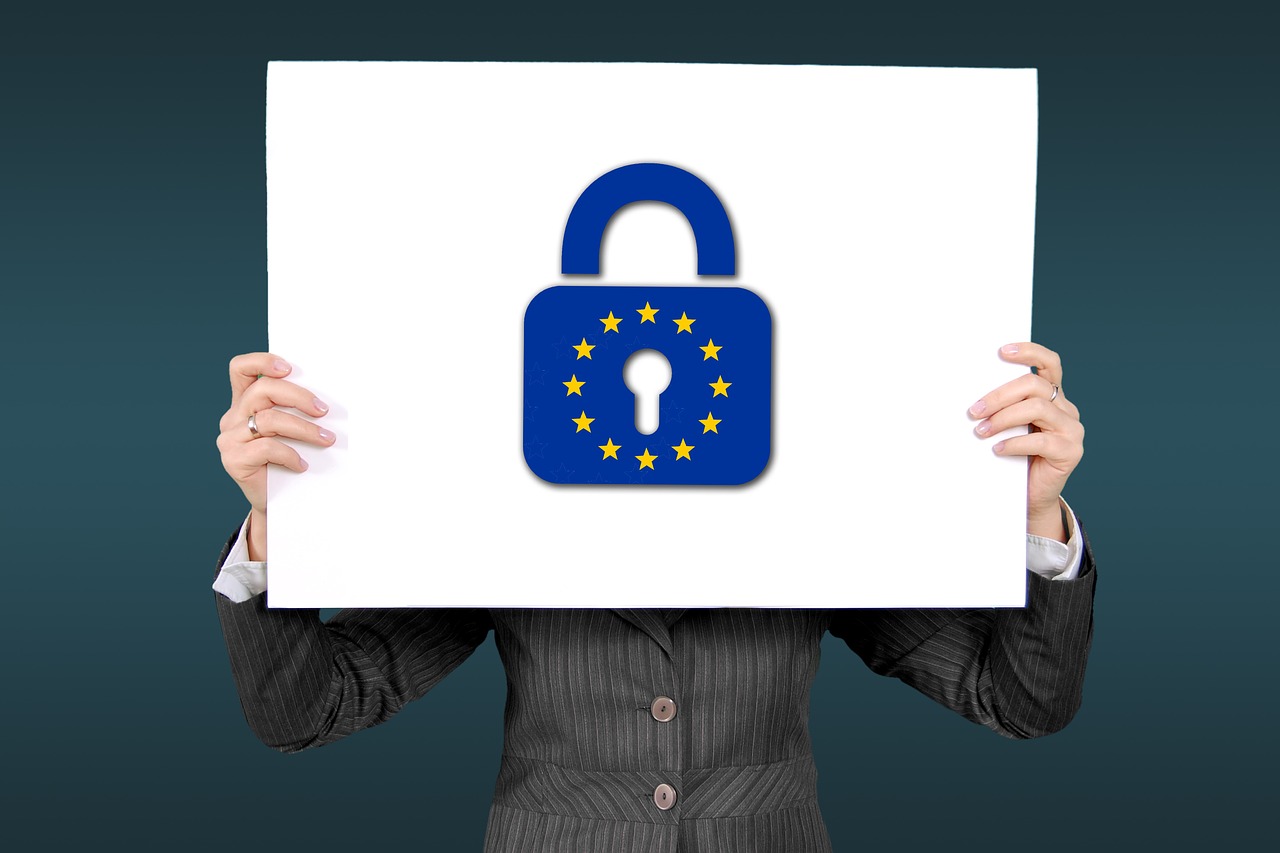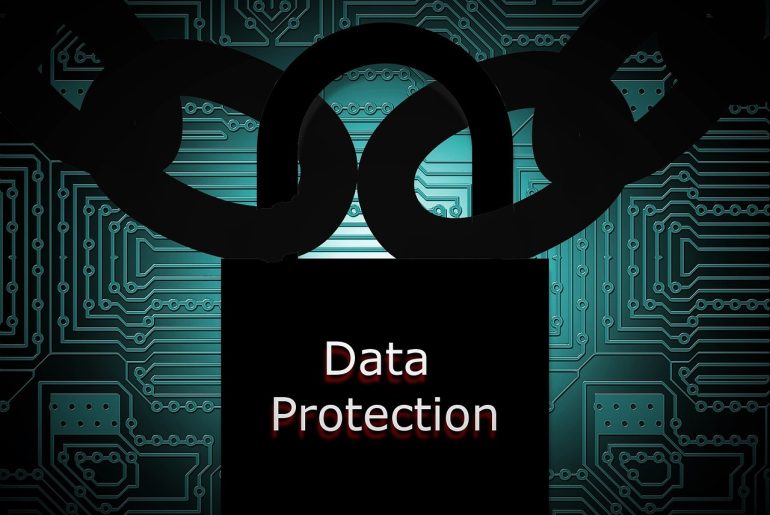This article may contain references to products or services from one or more of our advertisers or partners. We may receive compensation when you click on links to those products or services. Nonetheless, our opinions are our own.

Updated by Albert Fang
Customers prefer brands that protect their data.
With data theft on the rise, several online shoppers worry about data leakage and other data concerns. Online business thrives on data making data privacy essential for online businesses. Typically, online stores collect their customers’ data for different purposes.
Most remote buyers are keen on making their purchases with brands that comply with data privacy laws. About 66% of customers feel tech organizations have excess control over their data.
Hence, companies comply with data privacy to avoid penalties and fines, improve brand image, gain customer trust and build a large customer base.
What is the prevalent data privacy law for online businesses
Data privacy for internet users is improving. The GDPR, which spells General Data Protection Regulation, is the most prevalent data protection regulation. Online businesses that fail to comply with GDPR legislation pay huge fines that affect their company funds.
GDPR oversees data collection, transfer, and protection. It covers all residents of the EU member countries. GDPR governs data collection, use, transmission, and security for EU residents.
A crucial GDPR regulation is data mapping. To stay compliant and avoid penalties and fines, companies and eCommerce stores that compile customer data embrace data mapping best practices.
How to comply with GDPR Data mapping
Data mapping is organizing and structuring data to create a map and make data accessible for companies and their customers. Data mapping helps companies to classify and protect data and stay compliant with GDPR legislation.
With the tools available in the market, online companies will effectively map their data, reduce data risk and comply with GDPR.
Why you need tools for data mapping
Most innovative companies use tools for data mapping to structure data and stay compliant.
Tools for data mapping allow you to automate and speed up the mapping process. Data mapping software enables organizations to effectively arrange their data for easy access.
Any volume of information can be mapped using data mapping tools, which can map data to other data sources. These technologies automate the mapping process and assist users in efficiently and effectively mapping data.
The software allows users to choose their data structure and map design. The solution is most suitable for large companies with sizable databases. It ensures the data map complies with all GDPR data mapping requirements.
What is the impact of data privacy laws on online business

Consumers are growing more sensitive to how companies utilize their data due to the rising frequency of data breaches. By addressing user privacy and data protection as product features, businesses will benefit from this trend.
The following list of 10 concrete ways that following consumer privacy rules will affect your business:
Reduction in data collection
Generally, online businesses collect internet users’ data to understand the needs of their target users. While data collection is beneficial to companies, it presents its risks. Storing excessive data will lead to data breaches.
Thus, many online businesses are reducing the amount of customer and staff data they collect to avoid data leakage and other data risks. The knowledge of privacy laws improves businesses’ data collection and storage processes.
Risk management for third-parties
Data privacy laws affect third-party access to data. Since legal authorities regulate data usage, they compel companies to evaluate third parties and guard their data from possible risks. They must also comply with new requirements like contract protection and proof of compliance.
Several firms are switching to in-house data processors to reduce third-party access to their data. Generally, data breaching and leakages occur due to third-party access. Most online businesses are reducing their data risk to third parties to comply with privacy laws.
Identify high-risk data
Privacy laws distinguish the different types of data and their management concerning risk levels. Aim to set data policies that cater to different kinds of risks.
Crucial data, such as sensitive information of both employees and customers, need to be handled with caution by a risk management officer. This is because a risk management officer is trained to identify and assess potential risks to the company, and to develop and implement strategies to mitigate or prevent those risks from occurring. In the case of data privacy, a risk management officer can help ensure that sensitive customer information is properly protected and secure, preventing potential losses or dangers that could result from a data breach. Data privacy laws also require businesses to protect high risk data, and a risk management officer can help ensure that the company is in compliance with these laws.
New job opening within the business
In the bid to comply with privacy laws, companies have set in new roles within their business. New employees perform the new job roles, and their employers expect them to stay current on privacy laws to ensure data protection.
These new job roles open more job opportunities for employment within every organization. And more individuals get the chance to make more money. Hence, the company will provide more job roles to guarantee compliance with regulations.
Prevent data leaks
Using robust security measures to secure personal data is a privacy principle shared by all international privacy standards. It is a prerequisite in all data protection and regulatory privacy requirements. Organizations that apply such protections will decrease the number of cybersecurity threats that result in information leakage.
To protect privacy, businesses must securely carry out all processes related to gathering, storing, processing, transferring, sharing, and destroying personal data. In the past, enterprises only sometimes had thorough, effective data security measures applied to the entire company and every end device. In addition, businesses will prevent data breaches that harm data subjects by installing security safeguards for personal data.
Cybersecurity: block bots on your website
Many businesses invest in cybersecurity to safeguard their organizations and data from external factors like bots.
Bots affect your online presence in several ways, from stealing sensitive data to slowing down the site’s speed. Block bots on your website to protect your online presence.
Another security measure is to educate customers on how to safely run transactions online to avoid exposing their details or sharing sensitive data. Aim to adopt cybersecurity systems that protect your company from breaches and data theft.
Improved brand value
Improving an organization’s reputation and the image is one of the main benefits of user privacy. A company the public regards as one that protects user data and respects users’ privacy will reap the benefits of devoted customers.
Companies that make it clear that protecting the privacy of their customers is one of their top priorities show that they care about their customers’ privacy. They aid in achieving that goal by using privacy practices that offer this care transparently and consistently. As a result, there will be an increase in the value of their brands by creating strong emotional bonds with their customers.
Businesses now have to cope with increasing privacy requests that originate from multiple channels and are under various privacy standards. Privacy awareness and legislation are becoming standard practice globally. It’s more than simply compliance and will increase consumer confidence in your brand.
Competitive advantage
These severe privacy concerns and how they affect people’s behavior reveal that if your business can convey that it genuinely values the confidentiality of the personal information it collects and uses, it will stand out against rivals that do not place a high priority on privacy.
Moreover, organizations that gather and utilize data subject to the GDPR must abide by the regulation to draw in commercial clients. It is necessary because their compliance with the rule depends on their vendors. As consumers become more knowledgeable and conscious of privacy issues, they will look for businesses that take extra steps to ensure strict data privacy compliance. Scary to some brands, innovative brands utilize this to gain a competitive advantage.
Customer engagement
Companies today are incorporating “privacy by design” into typical consumer products by requiring strong passwords and automatically scheduled logouts, among other things. Users now consider security and privacy standard options and feature balance functionality with user experience.
Businesses must communicate openly with their customers. Organizations should inform these consumers of the timing and purposes of data collection. Many companies are incorporating customer privacy in their core competencies and carefully structuring the language in their cookie notifications and privacy policies. All these efforts are in a bid to complement their overall branding strategies.
In summary, customers support businesses that handle their personal information with the same level of care they do.
-
Changes in direct marketing strategies
Unless contact is made as part of an ongoing customer relationship for a comparable product, direct marketing by phone and email also needs agreement. Every time businesses contact a consumer, they must continue to provide them with an easy route to opt-out of direct marketing.
The regulation suggests that each nation establish “do not call” lists that businesses must consult before contacting people. Additionally, it mandates that marketing calls include a distinctive prefix or code that identifies them as such. Those who make marketing calls must also provide the name of the company or person they are calling on.
Comply with privacy laws and improve your business performance
The online space is a competitive one where customers have many options to choose from. To stay valid, you’ll need to boost your customer experience. A great way to build your customer experience is by guaranteeing the privacy of your customer data. Secure technologies like data clean rooms enable you to leverage valuable customer insights while upholding privacy, further enhancing your customer experience.
Complying with privacy laws will improve your customer experience and help build your brand reputation and save your company from spending extra on huge fines. Improve your business performance and stand out from the competition by privacy law compliance.

Reviewed and edited by Albert Fang.
See a typo or want to suggest an edit/revision to the content? Use the contact us form to provide feedback.
At FangWallet, we value editorial integrity and open collaboration in curating quality content for readers to enjoy. Much appreciated for the assist.
Did you like our article and find it insightful? We encourage sharing the article link with family and friends to benefit as well - better yet, sharing on social media. Thank you for the support! 🍉
Article Title: How Consumer Data Privacy Laws Will Impact Your Online Business
https://fangwallet.com/2022/12/28/how-consumer-data-privacy-laws-will-impact-your-online-business/The FangWallet Promise
FangWallet is an editorially independent resource - founded on breaking down challenging financial concepts for anyone to understand since 2014. While we adhere to editorial integrity, note that this post may contain references to products from our partners.
The FangWallet promise is always to have your best interest in mind and be transparent and honest about the financial picture.
Become an Insider

Subscribe to get a free daily budget planner printable to help get your money on track!
Make passive money the right way. No spam.
Editorial Disclaimer: The editorial content on this page is not provided by any of the companies mentioned. The opinions expressed here are the author's alone.
The content of this website is for informational purposes only and does not represent investment advice, or an offer or solicitation to buy or sell any security, investment, or product. Investors are encouraged to do their own due diligence, and, if necessary, consult professional advising before making any investment decisions. Investing involves a high degree of risk, and financial losses may occur including the potential loss of principal.
Source Citation References:
+ Inspo












































